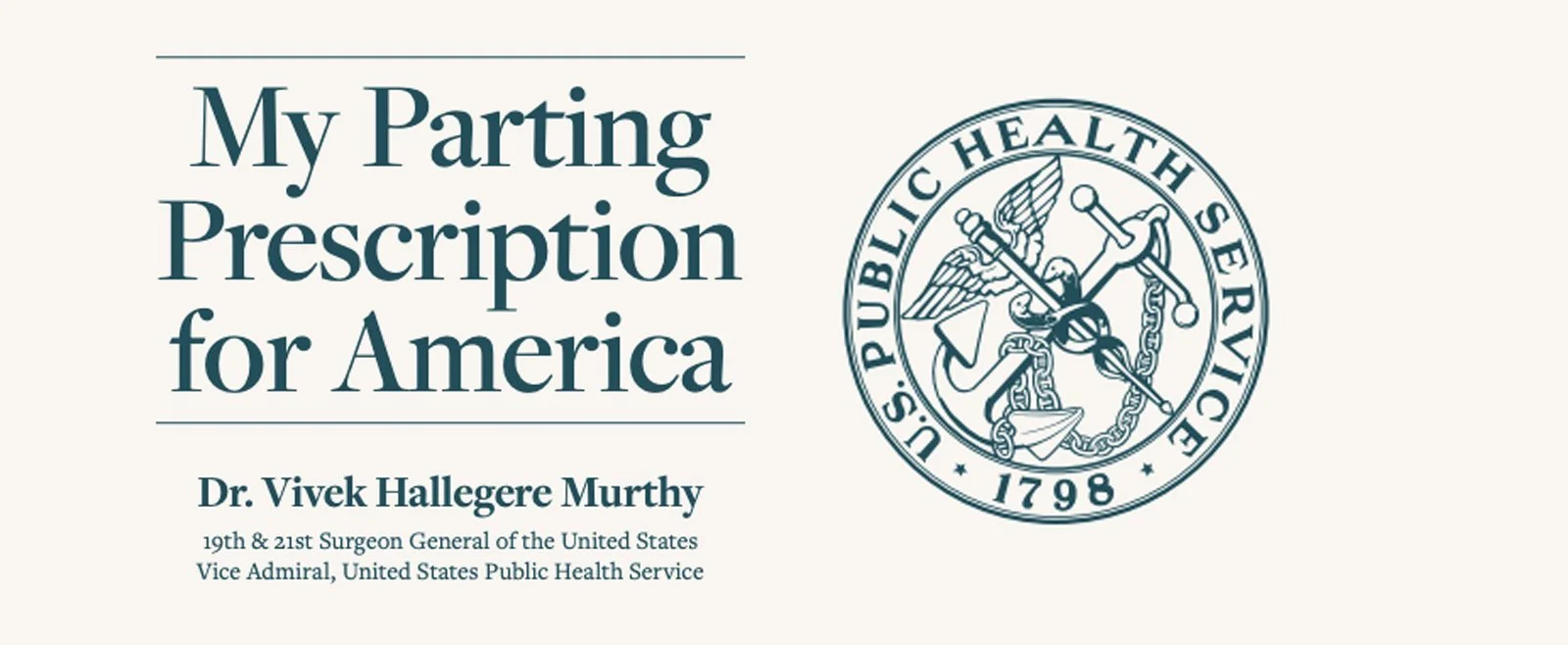Fostering Belonging and Civic Engagement
Hello friends,
In our chat last month about imagineering a kid-friendly future for Portland, Kali Thorne Ladd commended Dr. Vivek Murthy’s “Parting Prescription for America.” Several of you have reached out to say how much you loved it.
This document has been purged from the US Department of Health and Human Services website, but you can download the PDF here.
Murthy names “belonging” as an antidote to the epidemic of loneliness in the US. I can’t help but connect the dots with Robert Putnam’s keen insight that “belonging” is an antidote to authoritarianism, inequity, and polarization, too. In his 2020 book, The Upswing: How America Came Together A Century Ago and How We Can Do It Again, Putnam observes that civic participation and association has the power to heal divided communities — and a polarized nation.
Preacher, choir. I know.
This is the work you do — whether you officially run an organization, association, theater, government, labor union, church, bar, or philanthropy, or just seem to have a knack for getting your community engaged. Your role in formally or informally fostering belonging in Portland is why we invited you to gather in the center for civic leaders.
But convening communities has gotten harder over the last few decades. In The Upswing, Putnam observes:
“[F]or the first two thirds of the twentieth century Americans’ involvement in civic associations of all sorts rose steadily [. . .] In the last third of the century, by contrast, only mailing list membership continued to expand, with the creation of an entirely new species of association whose members never actually meet.”
The chart below is an abstraction, but it tells a compelling story. Starting in the rapacious and tempestuous turn of the 20th century, Putnam stacks up dozens of variables to show that the US became more economically, politically, socially, and culturally unified through the 1960s. We belonged more. We listened more. We voted more. We lived longer, fuller lives.
Putnam’s measured indicators are broad: Life expectancy, deaths of despair, high school and college graduation rates, income and wealth equality, intergenerational economic mobility, union membership, progressive tax distribution, regulation of financial markets, and the US real minimum wage; Cross party collaboration, polarization and conflict in legislative bodies; Voters’ trust in government, political cynicism and alienation, partisanship and inter-party feelings of comity; Volunteerism, civic engagement, and public service.
But since the 1960s, all of these indicators have trended in the wrong direction. I am more convinced than ever that the work you do — bringing people together in community to find common ground, deepen relationships, and solve challenges facing our city — is the most consequential work that we can do to reclaim our nation. One city at a time.
In other words: You’re already saving democracy. Now, keep going.
Courtesy Robert Putnam and Shaylyn Romney Garrett
When the North Star board read Putnam’s work shortly after the 2020 election, we knew we needed to shift how we worked and how we invested in Oregon. We completed research on best practices. And one year ago, we emailed an initial invitation to a handful of civic leaders in Portland: “Portland needs a new center for civic leaders. Let’s build one.”
Since then, more than 170 of you have joined together from different sectors in this experiment. We’re rolling up our sleeves to build a new way to gather, build trust, align strategies, and support our collective work as conveners in Portland’s diverse communities.
In the last several months, we’ve hosted workshops, discussions, presentations, problem solving groups, a citywide public opinion survey in partnership with Oregon Values and Beliefs, and a really big candidate forum focused on the future of Portland. We’ve amplified each others’ work and shared information and toolkits to respond to changing Federal policies.
At the end of May, we’ll evaluate our pilot year. (And perhaps after that we’ll adopt a name!)
Your work has never been more important, and supporting you is vital purpose for the center. One question we’ll be asking, is how this group can best add value as we strive, collectively in our diverse convening roles, to work in ways that are impactful, authentic, and deeply rooted in community.
At the same time, we’re focused on the future of Portland. All of you have weighed in on how we can work together to add value to Portland, and we’ll evaluate how well we’re doing.
Responses: What are the top four ways that this new group can add value to Portland?
Connect leaders to align energy and strategies: 85%
Convene discussions to support solution-finding: 76%
Foster trust among civic leaders: 73%
Identify policy paths to support shared projects: 59%
Align resources for shared projects: 57%
Want to help?
If you have expertise in program evaluation and would like to volunteer your talents to improving the center’s work, please reach out.
p.s. Haven’t read the Upswing? You can borrow a copy from the North Star library next time you stop by, or pick up your own copy at Powell’s!


